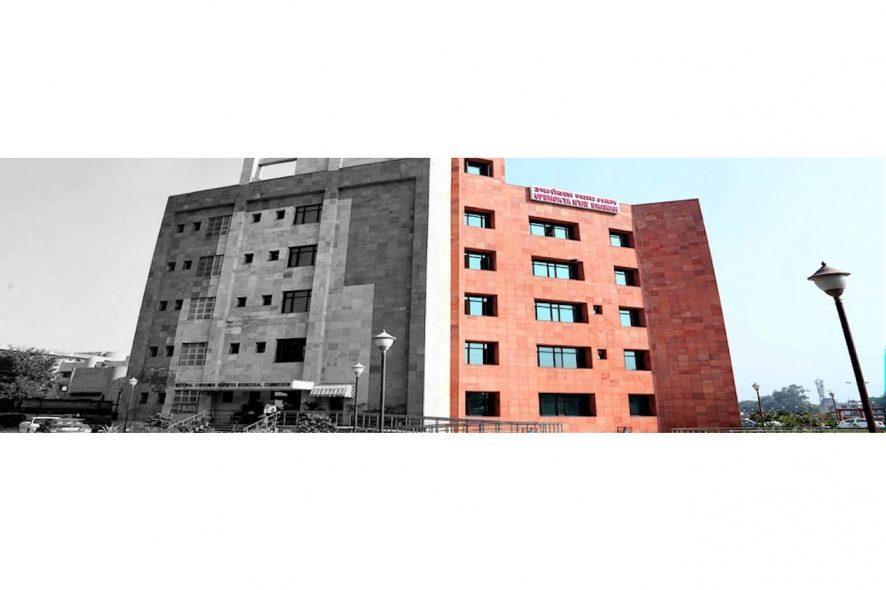National Consumer Disputes Redressal Commission (NCDRC): Justice V.K. Jain (Presiding Member), while disposing of the present application with respect to negligence of doctors, noted a very significant point, that,
“A doctor writing a prescription advised by any doctor cannot be said to be negligent only on account of his writing such a prescription.”
In the present case husband of the complainant visited OP-2 (Dr Sandeep Agarwal) in Sahara Hospital, Lucknow. Later he was admitted there for a day; during his stay at the hospital his pathology tests were done and it was found that his serum creatinine was found to be excessive from what is to be in the range prescribed.
No investigations or treatment for monitoring and management of high creatinine which was found in his reports indicating kidney disease was advised to him during the time of discharge and nor was he asked to consult the Nephrologist for the said purpose. On being admitted again to the hospital, he was seen by OP-2 as well as OP-3 (Dr Muffazal Ahmed). OP-3 had informed the family of the deceased and the deceased as well of suffering from the end-stage renal disease for which he required dialysis.
Further, it was stated that the complainant was allegedly given iron injection during his stay at the hospital though such injection according to the complainant was contra indicated in case of a person suffering from kidney disease. He was also prescribed iron injection without checking his ferritin level.
Complainant also stated that medicine Metformin was advised to the deceased which was again contra indicated in his case. Medicine named Liofen was also prescribed to him which was also contra indicated in the deceased’s case.
In view of the above, complainant alleged negligence on the part of OPs in the deceased’s treatment. Complainant thus approached the Commission seeking compensation for damages.
The above complaint has been resisted by the opposite parties.
Case of OPs is that they thought that the serum creatinine level might have increased due to dehydration. The discharge summary, however, does not record any such assumption. Even if the opposite party / treating doctor was of the opinion that high creatinine level could be due to dehydration, the least expected from him was to note it down in the discharge summary and advise the patient to get his creatinine level checked regularly, since the said level would have come down in due course had the same been caused by dehydration. Considering the high level of creatinine the OP-2 ought to have suggested consultation by a nephrologist to confirm the cause of the increase in serum creatinine. Therefore, it would be difficult to say that the OP-2 was negligent in the treatment of the complainant, he had not given any treatment or advise to him for the monitoring, management and treatment of the high level of serum creatinine found nor having advised him to consult a Nephrologist during the course of his treatment.
It is to be noted that ‘Encicarb’ was advised to the deceased to be infused daily for two hours for two days after a detailed discussion.
Treating doctor should first get the TSAT and Ferritin level of the patient checked before initiating ESA therapy. Admittedly, ferritin and TSAT of the complainant were not got checked soon before 18.3.2014 when intravenous iron Encicarb was advised to him. His ferritin levels were last checked on 10.12.2013 and more than three months had already expired by the time iron injection encicarb was advised to him on 18.3.2014. In view of the guidelines issued by Indian Society of Nephrology advising the injection Encicarb on 18.3.2014, without checking TSAT and ferritin was an act of negligence on the part of the opposite party No.3.
Tribunal on noting the material submitted by the complainant and considering the facts and circumstances of the case found OP-2 and 3 to be negligent in the treatment of complainant who died during the pendency of the complaint. Since OP-2 and 3 were working with OP-1, the said opposite party is vicariously liable for the negligent acts of OPs 2 & 3.
The next question for consideration was with respect to the quantum of compensation. Though the complainants have claimed compensation running into crores of rupees, the facts, and circumstances of the case do not justify such a huge and fanciful compensation. The complainant was alive when this complaint was instituted and he died during the pendency of this complaint. There is no evidence to prove that the complainant died on account of the deficiency attributed to the opposite parties in his treatment. His creatinine level was pretty high even at the time it was checked in Sahara Hospital.
Thus, Complainant was entitled to an aggregate of Rs 30 lakhs. [Gyan Mishra v. Sahara India medical Institute Ltd., 2019 SCC OnLine NCDRC 333, decided on 07-11-2019]






